The Series of the Century, Rendered in Pen
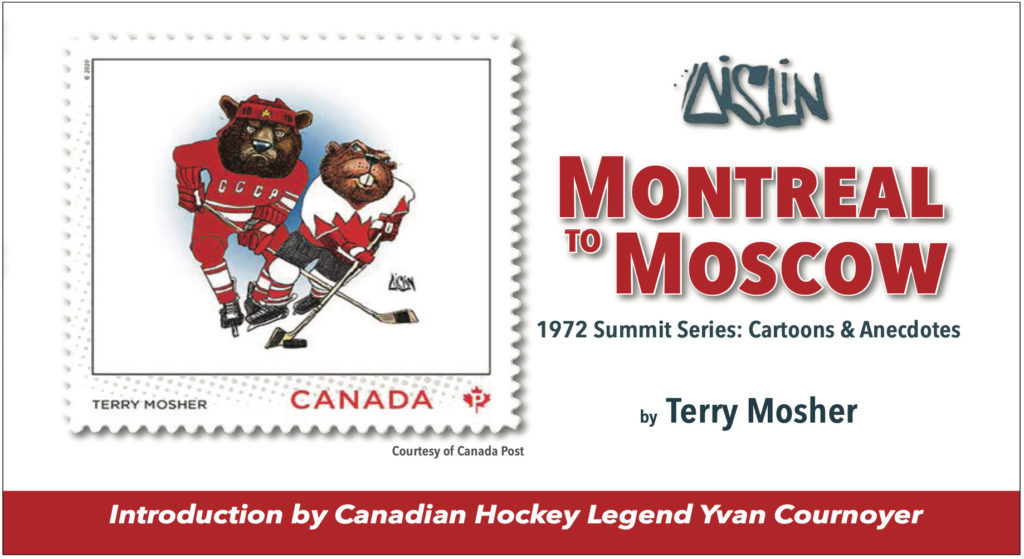
Montreal to Moscow: 1972 Summit Series Cartoons & Anecdotes
By Terry Mosher
Aislin Publications/September 2022
Reviewed by Anthony Wilson-Smith
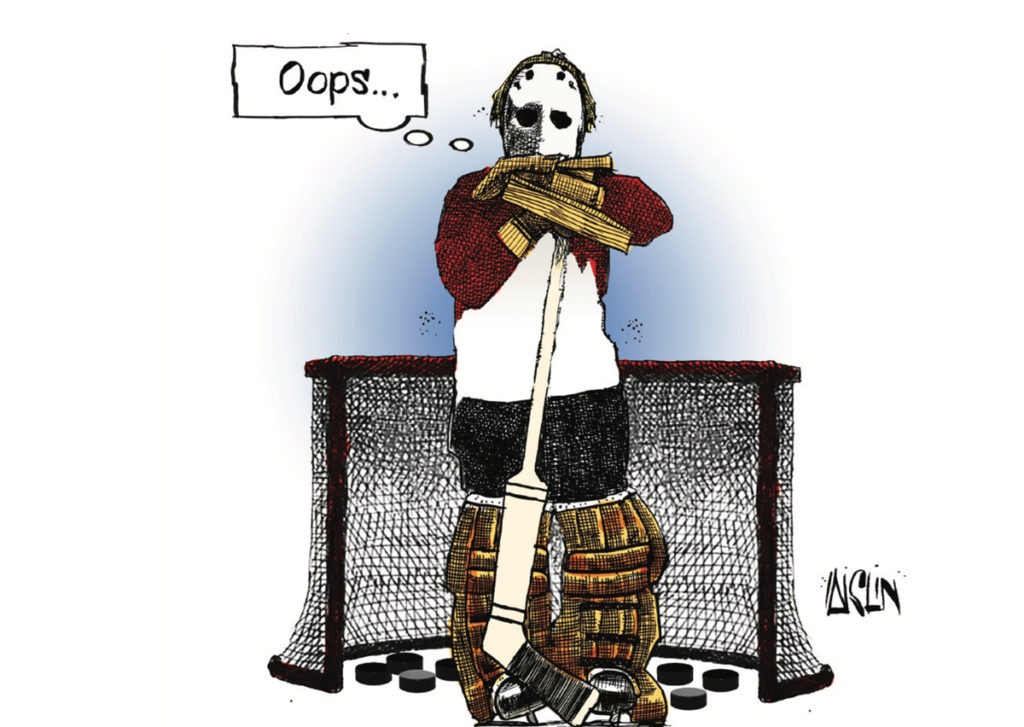
Half a century ago, before he became the éminence grise (or blanche), of Canadian editorial cartoonists, Terry (Aislin) Mosher was the archetypal intense young man – burning dark eyes, black hair, and, on occasion, mood to match. Today, he is a member of the Order of Canada, immortalized on a Canada Post stamp, member of the News Hall of Fame, recipient of honorary degrees from both Concordia and McGill, and still cartoonist for the Montreal Gazette.
Mosher’s snow-white hair, beard and twinkling eyes give him a Santa Claus look – without the waistline and with a harder edge when needed. On the eve of 80, he remains atop his game – and, by his own description, the happiest he’s ever been.
But for a vision of who he was a half century ago, and how he matched the clangorous times, read Terry’s engaging new book, Montreal to Moscow: 1972 Summit Series Cartoons & Anecdotes, about the Team Canada vs. Soviet Union Cold War hockey series – four games across Canada followed by four games in Moscow – that transcended sports to become an indelible element of Canadian identity. Slim but packed with engrossing drawings, photographs and anecdotes, it details the on-ice and background drama during what remains the country’s most storied sporting event, based largely on the odds-defying goal by Paul Henderson that clinched the series for Canada with 34 seconds to go.
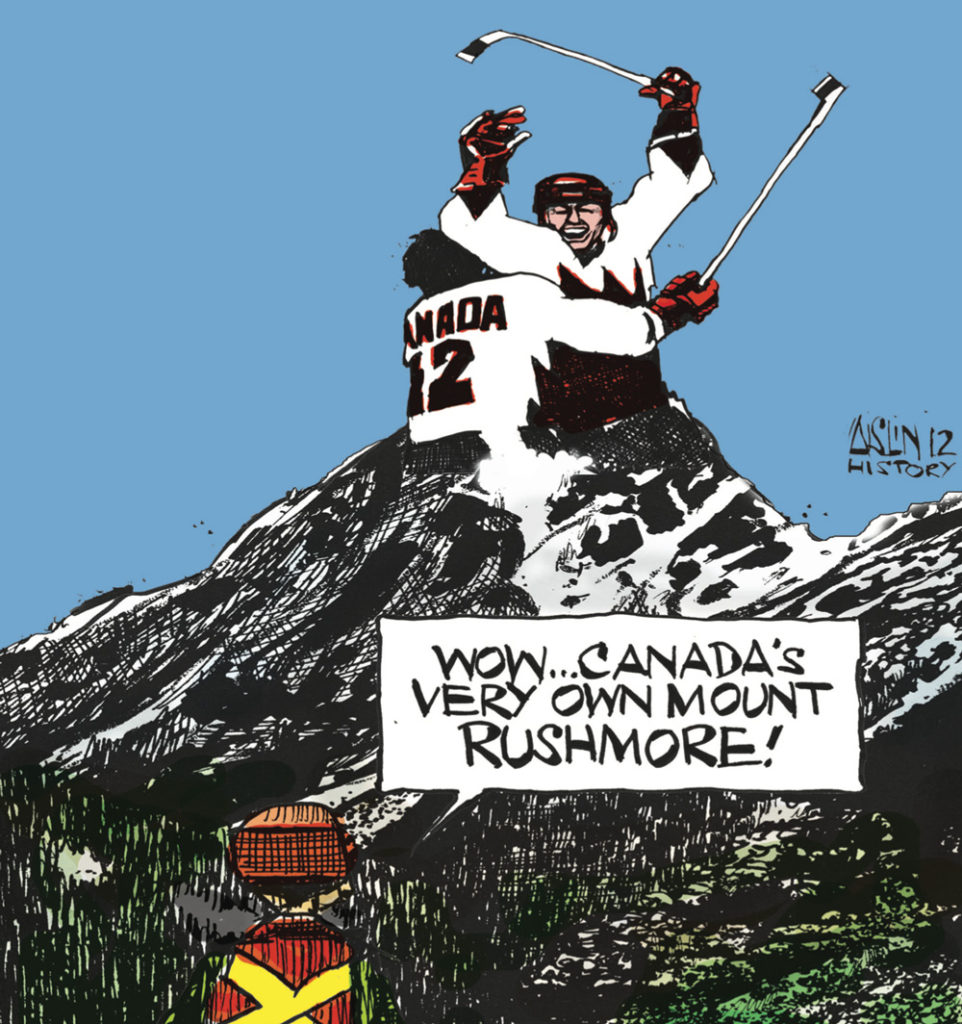
But before the goal of the century, there was the confidence of Canadian players and fans; the shock and despair as the Russians swept to three wins and a tie in the first five games; Canada’s underdog comeback and, finally, the winning goal that sent the largest live television audience in Canadian history into paroxysms. To all that, Terry was a witness, from Montreal to Moscow. His notebooks, drawings and memories vividly re-create the period, and the passions, fears and bragging rights involved.
As the series began, the soft-power side of the Cold War rivalry between the Soviet Union and the West that played out in PR battlefields from chess boards to outer space was still in full swing. Quebec was still reeling from the after-effects of the 1970 October Crisis. Just days after the series began, 11 Israeli athletes were murdered by terrorists at the Munich Olympics. The United States was still in Vietnam and the Watergate conspiracy was still in its containment stage. But that September in Canada, all eyes were on the Summit Series.
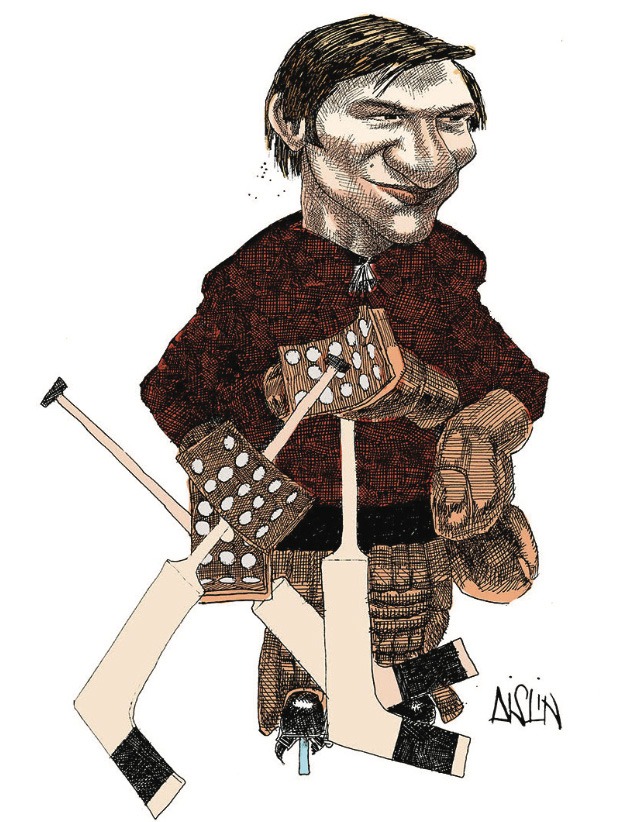
In 1972, Terry was only five years removed from scratching out a living doing caricatures of tourists in Quebec City’s Vieux Quartier. In photographs included, he has a cigarette in one hand, a beer or shot in the other – vices he put aside many years ago. His images and captions are sharp to the point of razor-tipped: a blood-spattered ice surface reflects the goonish behavior of Team Canada at times; a drawing of Moscow with Canadian tourists asking to buy the most basic food items and answered by a series of ‘nyet’s reflects the paucity of choice in Russian stores.
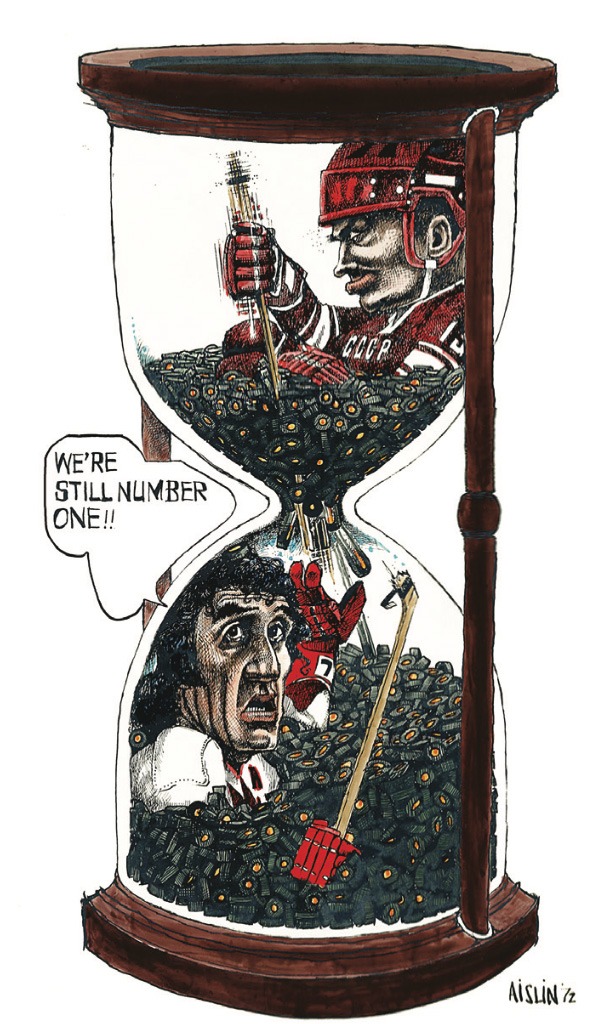
The book reminds us how smoothly Terry moved beyond an early indifference to politics and world events to become a superb journalist and commentator. His descriptions of both sides – and countries – in this story are balanced and delivered in telling anecdotes. Some are heartwarming: Henderson gave the iconic number 19 jersey he was wearing when he scored his momentous goal – a triumph replayed today by fans of both sports and human drama in the hundreds of thousands on YouTube – to team trainer Joe Sgro as a thank-you. Years later, after changing hands several times, it sold for more than one million dollars.
Montreal to Moscow also reminds readers of how long – and thoroughly – Terry, as Aislin (the pen-name is after his first-born daughter), has been an integral part of Canadian life. Terry has chronicled our collective experience for so long and so well, it’s impossible to imagine a world without him engaging, enraging, amusing and arousing his readers. Happily, he’s far from done. With this book, he reminds us that even as the world lurches from one crisis to the next, we’ve been down bumpy roads before, and history is full of surprises.
Contributing Writer Anthony Wilson-Smith, President and CEO of Historica Canada is a former editor-in-chief of Maclean’s.
